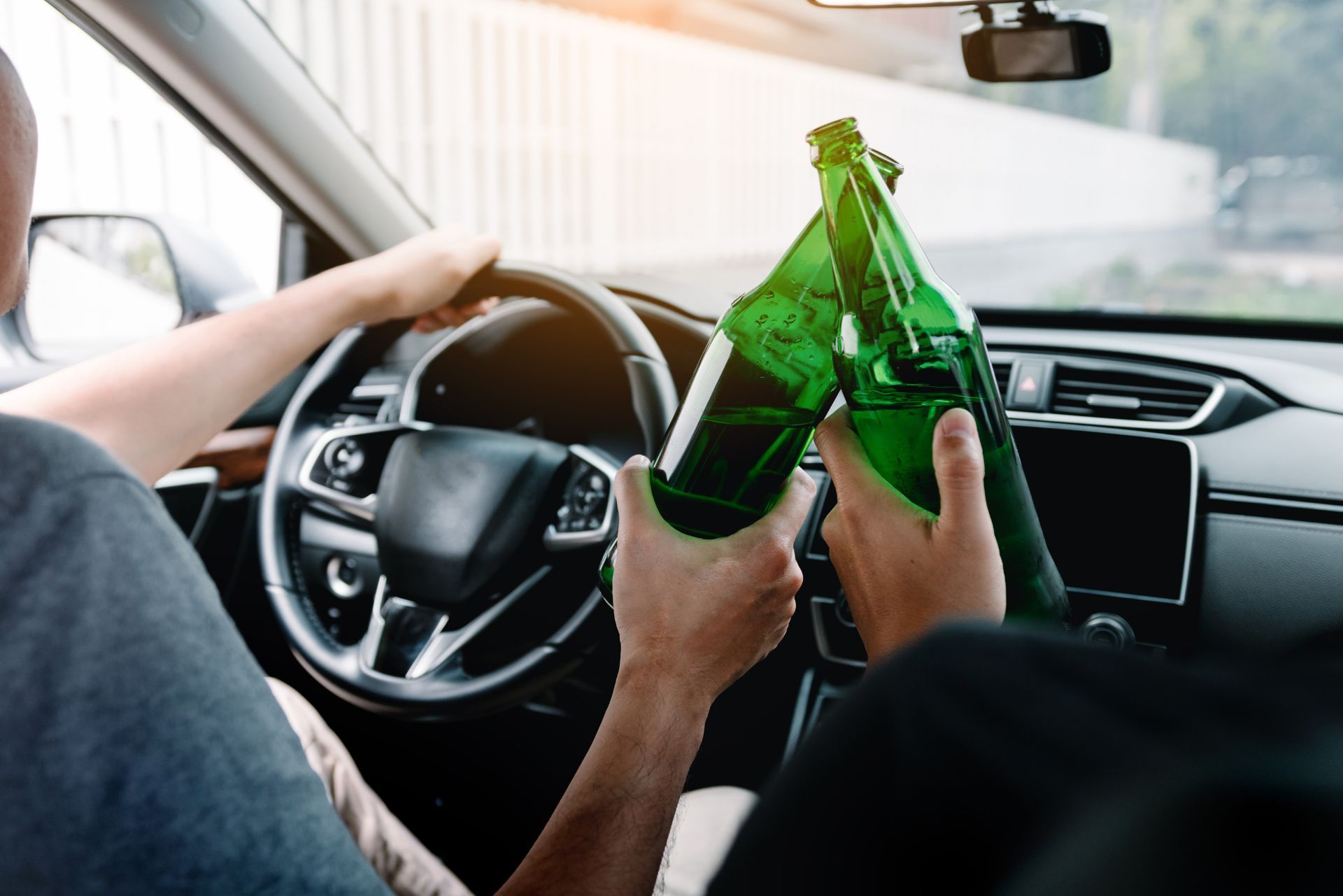
Driving under the influence (DUI) is a serious offense that can have lasting repercussions, including the need for specialized insurance coverage. In St. Petersburg, Florida, navigating the complexities of DUI insurance can be daunting. This article aims to provide comprehensive insights into DUI insurance, its implications, and how to secure the best coverage for your needs.
Understanding DUI Insurance
DUI insurance is not a distinct type of insurance policy but rather a term used to describe the high-risk auto insurance required for individuals who have been convicted of a DUI. After a DUI conviction, insurers categorize the driver as high-risk, which typically leads to increased premiums and specific coverage requirements. This classification can remain in effect for several years, depending on the state laws and the individual’s driving record, making it crucial for those affected to understand their options and obligations.
What is High-Risk Insurance?
High-risk insurance is designed for drivers who have a history of accidents, traffic violations, or other factors that make them more likely to file a claim. In the case of a DUI conviction, insurers may view the driver as a higher liability, resulting in a significant increase in premiums. This type of insurance is essential for legally driving after a DUI conviction and may be required by the state. Additionally, high-risk insurance policies often come with stricter terms and conditions, including higher deductibles and limited coverage options, which can further complicate the financial situation of the driver.
Why is DUI Insurance Necessary?
In Florida, having insurance is a legal requirement for all drivers. After a DUI conviction, the state mandates that individuals carry a specific level of insurance coverage to reinstate their driving privileges. Failure to obtain the necessary insurance can lead to further legal complications, including license suspension and additional fines. Moreover, maintaining proper DUI insurance not only helps in complying with state laws but also protects the driver from potential liabilities in case of future incidents. The consequences of driving without adequate insurance can be severe, including increased penalties and difficulties in securing future insurance coverage.
Furthermore, the process of obtaining DUI insurance can be daunting for many. Drivers may find themselves needing to shop around for insurers willing to provide coverage, as not all companies will insure high-risk drivers. This can lead to frustration and confusion, particularly if the driver is unfamiliar with the insurance market. It’s often recommended that individuals consult with an insurance agent who specializes in high-risk policies to navigate the complexities of their situation effectively. These professionals can provide valuable insights into the best coverage options available and help drivers understand the implications of their DUI conviction on their insurance rates and overall driving record.

Legal Requirements for DUI Insurance in Florida
Florida law has specific requirements for drivers who have been convicted of DUI. Understanding these requirements is crucial for compliance and for regaining driving privileges. Navigating the aftermath of a DUI conviction can be overwhelming, but being informed about the legal landscape can significantly ease the process. It’s not just about fulfilling the legal obligations; it’s also about ensuring that you are adequately protected on the road.
SR-22 Filing
One of the primary legal requirements for DUI offenders in Florida is the SR-22 form. This form is a certificate of financial responsibility that proves a driver has the minimum required insurance coverage. It is filed by the insurance company with the state and serves as proof that the driver is meeting their insurance obligations. The SR-22 is not an insurance policy itself, but rather a document that verifies your insurance status to the state authorities.
Typically, the SR-22 must be maintained for a minimum of three years following the DUI conviction. If the insurance lapses during this period, the insurance company is required to notify the state, which can lead to the suspension of driving privileges. This requirement underscores the importance of continuous coverage; even a brief lapse can have significant repercussions, including extended periods without a valid license and increased insurance premiums. Drivers should also be aware that not all insurance companies offer SR-22 filings, so it’s essential to shop around for providers who can accommodate this requirement.
Minimum Coverage Requirements
Florida mandates specific minimum coverage levels for drivers, which include:
- $10,000 in personal injury protection (PIP)
- $10,000 in property damage liability (PDL)
However, after a DUI conviction, insurers may require higher coverage limits, and it is advisable to consider additional liability coverage to protect against potential lawsuits resulting from accidents. Given the serious nature of DUI offenses, many insurance companies view these drivers as high-risk, which can lead to higher premiums and stricter underwriting standards. Therefore, it’s prudent for individuals to not only meet the state’s minimum requirements but also to evaluate their personal circumstances and potential risks. This might include opting for higher limits on liability coverage or even considering umbrella insurance policies that provide additional protection beyond the standard limits.
Moreover, it’s important to understand that the implications of a DUI conviction extend beyond just insurance costs; they can affect employment opportunities, personal relationships, and overall quality of life. Many employers conduct background checks that include driving records, which means a DUI can have long-lasting effects on one’s professional life. Therefore, taking proactive steps to manage the financial and legal aftermath of a DUI conviction is essential for rebuilding one’s reputation and ensuring a safer driving future.
Factors Affecting DUI Insurance Premiums
Several factors influence the cost of DUI insurance premiums. Understanding these factors can help individuals make informed decisions when shopping for insurance.
Severity of the DUI Offense
The severity of the DUI offense plays a significant role in determining insurance premiums. A first-time DUI offense may result in lower premiums compared to multiple offenses or aggravated DUI charges, which can lead to much higher rates. Additionally, the circumstances surrounding the DUI, such as whether there was an accident involved or if there were minors in the vehicle, can further impact the severity classification and, consequently, the insurance costs. Insurers often assess the potential risk associated with the driver based on these factors, which can lead to significant variances in premium amounts.
Driving History
A driver’s overall driving history also impacts insurance costs. A clean driving record with no previous accidents or violations can help mitigate some of the premium increases associated with a DUI conviction. Conversely, a history of traffic violations can exacerbate the situation, leading to even higher rates. Furthermore, insurers may look at the length of time since the last infraction; a recent DUI may carry more weight than one that occurred several years ago. This means that maintaining a clean record after a DUI can gradually help lower premiums over time, as insurers often reward safe driving habits with discounts.
Insurance Provider
Different insurance companies have varying policies regarding high-risk drivers. Some may specialize in providing coverage for individuals with DUIs, while others may refuse to insure them altogether. It is essential to shop around and compare quotes from multiple providers to find the best rates and coverage options. Additionally, some insurers may offer programs aimed at rehabilitation or safe driving courses that can help lower premiums after a DUI conviction. Engaging with these programs not only demonstrates a commitment to responsible driving but can also lead to potential discounts, making it a worthwhile consideration for those affected by DUI charges.
Finding the Right DUI Insurance in St. Petersburg
Securing the right DUI insurance in St. Petersburg requires careful consideration and research. Here are some steps to guide individuals through the process.
Research Insurance Providers
Start by researching insurance companies that offer coverage for high-risk drivers. Look for providers with a good reputation for customer service and claims handling. Online reviews and ratings can provide valuable insights into the experiences of other customers. Additionally, consider reaching out to local community forums or social media groups where individuals share their experiences and recommendations regarding DUI insurance. This grassroots approach can uncover lesser-known providers that may offer competitive rates and exceptional service.
Compare Quotes
Once a list of potential insurance providers is compiled, it is essential to request quotes. Many companies offer online quote tools that allow individuals to compare rates quickly. Be sure to provide accurate information to ensure the quotes reflect the true cost of coverage. When comparing quotes, pay attention not only to the premiums but also to the coverage limits, deductibles, and any additional fees that may apply. Understanding the nuances of each policy can prevent unexpected costs down the road and ensure that you are adequately protected in the event of an accident.
Consult with an Insurance Agent
Consulting with an insurance agent who specializes in high-risk insurance can be beneficial. They can provide personalized advice, help navigate the complexities of DUI insurance, and assist in finding the best policy for individual needs. An experienced agent can also inform you about state-specific regulations and requirements that may affect your coverage options. Furthermore, they can help you understand the potential for premium reductions over time, as maintaining a clean driving record can lead to more favorable rates in the future. Engaging with an agent can ultimately save you both time and money, ensuring that you make informed decisions tailored to your unique situation.

Tips for Lowering DUI Insurance Premiums
While DUI insurance premiums can be steep, there are strategies that individuals can employ to help lower their costs.
Maintain a Clean Driving Record
After a DUI conviction, maintaining a clean driving record is crucial. Avoiding further traffic violations and accidents can help demonstrate responsible driving behavior to insurers, which may lead to lower premiums over time. Additionally, many insurance companies review driving records periodically, so a sustained period of safe driving can yield positive results. It’s also beneficial to regularly check your driving record for inaccuracies, as correcting any errors can further help in negotiating better rates.
Complete a DUI Education Program
Many states, including Florida, offer DUI education programs that can sometimes help reduce insurance premiums. Completing such a program can show insurers that the driver is taking steps to improve their behavior, which may positively impact their rates. Furthermore, these programs often provide valuable insights into the risks associated with impaired driving and may even include defensive driving techniques that can enhance overall road safety. Some insurance companies may even have partnerships with these programs, offering additional discounts to participants.
Consider Bundling Policies
Bundling auto insurance with other types of insurance, such as homeowners or renters insurance, can lead to discounts. Many insurance providers offer multi-policy discounts, which can help offset the costs associated with DUI insurance. It's worth shopping around and comparing different insurers, as some may offer more significant savings than others for bundled policies. Additionally, bundling can simplify your insurance management, allowing you to handle all your coverage needs through a single provider, which can save time and effort in the long run.
Shop Around for Quotes
Another effective strategy for lowering DUI insurance premiums is to shop around for quotes from various insurance providers. Different companies assess risk differently, and some may be more lenient towards drivers with a DUI on their record. By obtaining multiple quotes, you can compare not only the premiums but also the coverage options and customer service ratings. Online comparison tools can streamline this process, making it easier to find the best deal tailored to your specific situation.
Increase Your Deductibles
Increasing your deductibles can also lead to lower premiums. While this means you will pay more out-of-pocket in the event of a claim, it can significantly reduce your monthly insurance costs. It's essential to assess your financial situation and determine how much you can afford to pay in case of an accident. For many, the trade-off of lower premiums for a higher deductible can be a worthwhile investment, especially if they maintain a clean driving record and avoid accidents.
The Impact of a DUI on Future Insurance Rates
A DUI conviction can have long-lasting effects on a driver's insurance rates. Understanding these implications is vital for planning future insurance needs.
Duration of Rate Increases
Typically, a DUI conviction can impact insurance rates for three to five years, depending on the insurer and the state laws. During this time, drivers may face significantly higher premiums compared to their pre-DUI rates. This increase is often a direct reflection of the perceived risk by insurers, as a DUI is considered a serious offense that indicates a higher likelihood of future claims. In some cases, drivers may even find it challenging to secure coverage at all, as certain companies may refuse to insure individuals with a DUI on their record.
Potential for Rate Reduction
As time passes and drivers maintain a clean record, there is potential for rates to decrease. Insurance companies often review driving records periodically, and a history of safe driving can lead to lower premiums once the DUI is no longer a factor. Additionally, many insurers offer programs or discounts for safe driving courses, which can help mitigate some of the financial repercussions of a DUI. Engaging in these programs not only demonstrates a commitment to responsible driving but can also serve as a proactive measure to regain favorable insurance rates more quickly.
Additional Consequences Beyond Insurance
In addition to the immediate financial impact on insurance rates, a DUI conviction can carry other significant consequences that may indirectly affect a driver's overall financial health. For instance, many employers conduct background checks that include driving records, and a DUI could hinder job prospects, particularly for positions that require driving as part of the job. Furthermore, the legal costs associated with a DUI, including fines, court fees, and potential attorney fees, can add up quickly, creating a financial burden that lasts well beyond the initial conviction.
Long-Term Financial Planning
Given the potential for increased insurance rates and other financial repercussions, it is crucial for individuals with a DUI conviction to engage in long-term financial planning. This may involve budgeting for higher insurance premiums in the immediate years following the conviction, as well as exploring alternative insurance providers that may offer more competitive rates. Additionally, individuals should consider consulting with financial advisors who can provide tailored strategies for rebuilding their financial standing and improving their creditworthiness, which can also play a role in securing better insurance rates in the future.
Conclusion
Navigating the world of DUI insurance in St. Petersburg, FL, can be challenging, but understanding the requirements and factors involved can make the process more manageable. By being proactive in researching providers, comparing quotes, and maintaining a clean driving record, individuals can find the right coverage at a more affordable rate.
Ultimately, while a DUI conviction can lead to higher insurance costs, it is possible to regain control over driving privileges and find suitable insurance coverage. With the right approach, individuals can move forward positively and responsibly.
Contact Us


